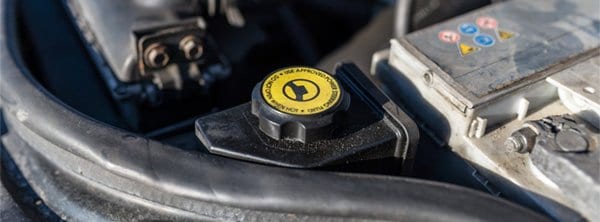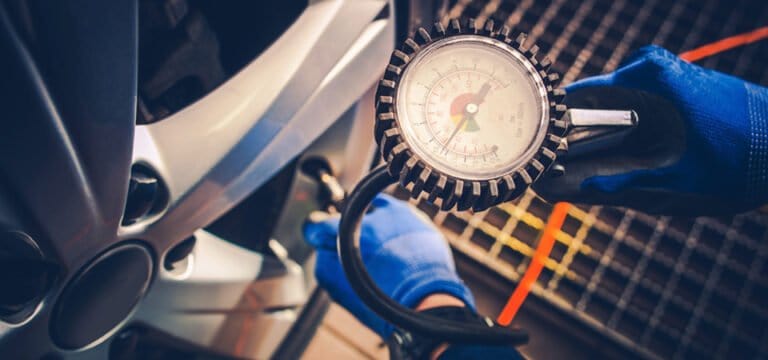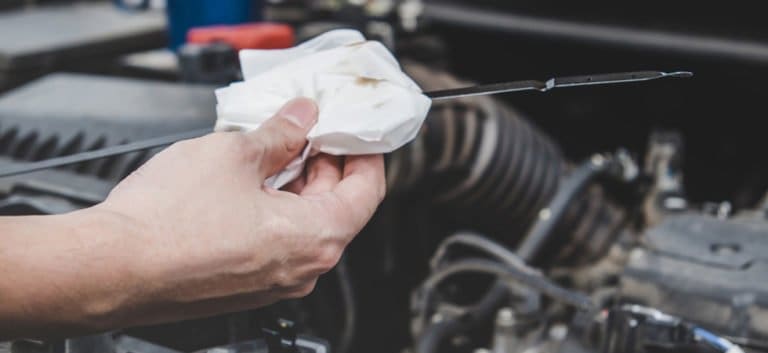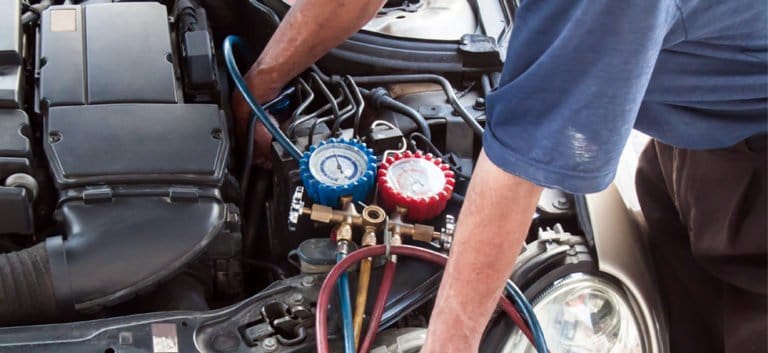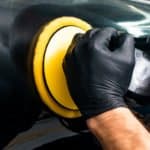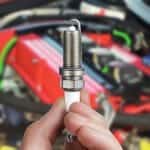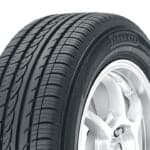Affiliate Disclosure: Some of the links in this post are affiliate links. As an Amazon Associate, we earn from qualifying purchases. Read more in our affiliate policy.
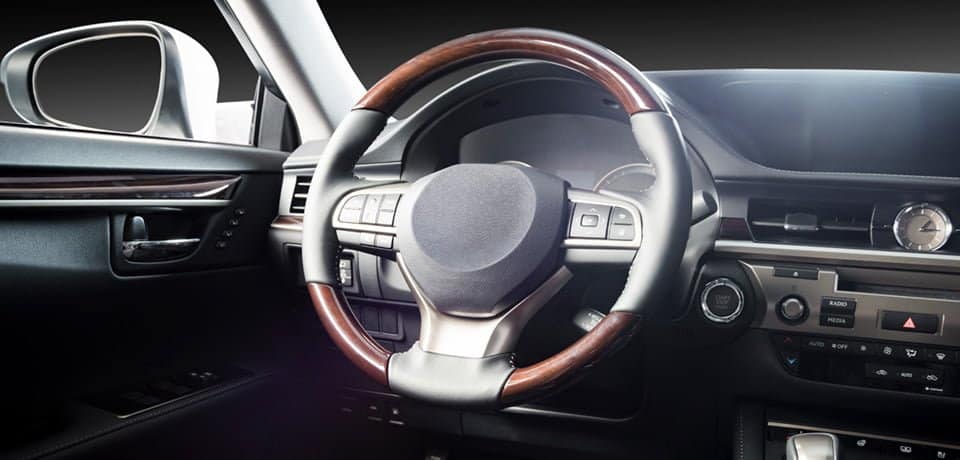
Steering Wheel Makes Noise When Turning? Here’s What It Means!
Your steering wheel should provide smooth well-controlled navigation for you when you’re driving your car. A lot happens when you make that turn, a sequence of processes happen to make that possible. So what does it mean when your steering wheel makes noise when turning?
It should be unusual that it does make a significant sound or noise when you steer it, so don’t worry, your assumptions are not out of whack.
We’ll discuss and find out about the different things your car is telling you when your steering wheel makes some noise, only here at garagechief.com.
Steering Wheel Makes Noise When Turning – The Causes
Let’s have a list of the reasons first to give you an overview. The noise when turning steering wheel can be caused by the following:
- Worn out shocks
- Check up on the ball joints
- Failing suspension bushings
- Check on your power steering rack
- Clogged or dirty reservoir
- Bad tie rod ends
- Power Steering fluid
Worn out shocks
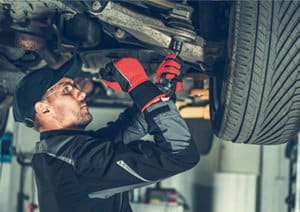
Your struts and shocks are worn out if you notice significant bouncing or bumping on your travel.
So go check up on them once you hear noise when turning the steering wheel as these components may very well be the culprits and may need to be replaced.
Check up on the ball joints
Next up are the ball joints. Ball joints allow control and adjustment on the movement of your vehicle. It’s an essential part of your car as it connects the control arm to the steering knuckle.
So when you hear creaking when you turn that steering wheel you may want to lubricate the ball joints of your car. Regular lubrication goes a long way and will prevent such issues from coming up.
Failing suspension bushings
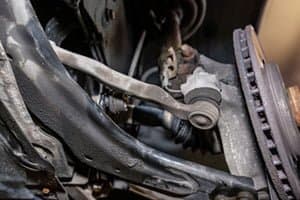
It also controls the amount of movement in the joints and helps reduce noise and vibrations. Suspension bushings wore out easily and chances are when your car makes noise when turning, you may need to replace it.
If you’ve had 90000 to 100000 miles on it, then it may be time for a replacement. Even more so when you always travel on rougher roads.
Check on your power steering rack
The function of your power steering rack is to pump adequate amounts of high pressurized hydraulic fluid which it utilizes from an engine-driven pump to the steering rack when you turn your wheel.
It connects to your steering wheel through a set of shafts and U-joints. So chances are when you hear creaking noise when turning your steering wheel, it’s your power steering rack that’s gone bad as it may not be supplying adequate amounts of the fluid needed for your steering wheel.
This kind of symptom mostly arises when turning at low speeds and around corners.
More things to check on if your steering rack is faulty:
- Your steering wheel is hard to turn or too tight
- Red or pink fluid leaking
- This could very well be your power steering fluid leaking
- If you sniff on a burning smell
- When your fluids are leaking that means there’s not enough for the hydraulics to use during transmission, leading to that burnt smell
- Grinding noise arises when your system lacks lubrication
- Steering wheel won’t center
- It’s not normal that your steering wheel won’t return to its center position, so if it doesn’t, then that’s a clear sign that there’s something wrong with your steering rack and pinion
Cause of damage on your steering rack and pinion
- Bad or loose connection
When the steering rack and pinion are ill-fitted then power fluid will be able to seep through and leak. - Faulty Gasket
Not that expensive to replace, if your gasket is faulty then you should take care of it soon to avoid further leaks from happening. - Faulty seals
Same as with your gasket, replace your system’s seals to prevent the further leak from happening. This is not as unusual as you think it’d be.
Clogged or dirty reservoir
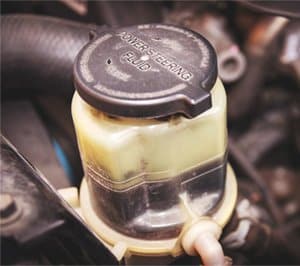
In turn, it will not be able to provide the much needed clean power steering fluid for your steering system thus resulting in that grinding noise when turning your steering wheel.
Again, cleaning when maintaining your vehicle is important and this symptom just goes to show that you should pay extra attention to the different filters of your car.
Bad tie rod ends
The tie rod is the component in your system that transmits the force from the rack gear to the steering knuckle. In short, this causes the wheel to turn in the first place. The outer tie rod end connects with the adjusting sleeve that allows the length of the tie rod to be adjusted. This adjustment is important as it sets the vehicle’s alignment angle.
So when your tie rod ends are failing it will result in that clunking noise when turning.
Some symptoms of a bad tie rod end:
-
Steering shakes significantly
Given that its function is to keep all components of your steering system in place, it’s a tell-tale sign that if your steering shakes uncontrollably at times that it’s a case of bad tie rod ends.
This will significantly get worse when speeding up or turning in a corner. -
Bad alignment
When your car keeps veering on one side then you may have some alignment issues and that’s also a clear sign of failing tie rod ends.
-
Steering wheel moves freely
What we meant by this is when your steering wheel is too easy or too loose to control, you may need to get it checked right away.
-
Listen
Does your car squeak when turning? Or what about that clicking noise when turning? Listen to your car especially when turning a corner. It may be just needed lubrication but to be sure and to have that peace of mind you might want to get it checked.
-
Tire wear
When you notice uneven tear and wear on your tires then that could very well be evidence of bad tie rod ends. If you don’t have alignment issues then the wear on your tires should be at a most equal level.
-
Vibration
Unusual vibration occurs when your tie rod ends are failing as well. It may be time to get it checked.
Power Steering fluid
If there are still significant noises when turning your steering wheel then it may be time to check for the levels of your power steering fluid as you may be running low on supply. Check for leaks on other components and make sure to replenish when needed.
You should check on this monthly.
A quicker guide:
- At low speeds:
- Check on suspension joints and power steering pump
- At normal speed:
- Check on the power steering system
- Low levels of power steering fluid
- Check on the tie rod ends
- Check on a loose belt
- At faster speeds:
- Check on the CV joints
- Bearings or differentials
Power Steering Flush And Fill Procedure
How to Maintain Your Car’s Power Steering System
Steering fluid must be clean and constantly topped up
Always check for the clarity of your power steering fluid in your reservoir. It’s of utmost priority that you check for leaks to prevent shortage or check for dirt to keep the quality of the fluid flowing in top condition.
Check on your hoses
The two hoses that are responsible for delivering your power steering fluid to the rack and pinion and return to the reservoir are also very important. You can check on leaks here, check if the hose is still in good condition, they wear out in time (usually made of rubber) and may need to be replaced.
Replace filter
Make sure to check and replace the filter at least once a year for better and consistent performance.
Check on the fuel pump
This one can lead to expensive repairs so identifying and paying attention to those noises you hear when turning your steering wheel which in turn leads you to a bad fuel pump shouldn’t be ignored. Learn more on what the bad fuel pump signs are.
Creaking Noise When Turning Steering Wheel – Conclusion
When your steering wheel makes noise when turning, it’s not only the creaking, groaning or clunking that we are concerned about. It’s a symptom of an illness in your car that needs to be checked. Our primary concern is to identify what’s causing it before it’s too late.
Sometimes, it may cost you more money, waste more of your time and will lead to all sorts of hassle when you pay attention to such symptoms a little too late. And worse it may lead to serious accidents (knock on wood).
Here at garagechief.com, we’ll be sure to give you all sorts of tips and updates on your favorite ride. Enjoy your day and come visit us again.
Disclaimers
All product names, logos, and brands are property of their respective owners. All company, product and service names used in this website are for identification purposes only. Use of these names, logos, and brands does not imply endorsement.
It is our policy to make every effort to respect the copyrights of outside parties. If you believe that your copyright has been misused, please provide us with a message stating your position and we will endeavor to correct any misuse immediately.
Some of the links in this post are affiliate links. As an Amazon Associate, we earn from qualifying purchases. This means if you click on the link and purchase the item, we may receive an affiliate commission, at no extra cost to you. This helps us keep this website alive. Read more in our affiliate policy.
